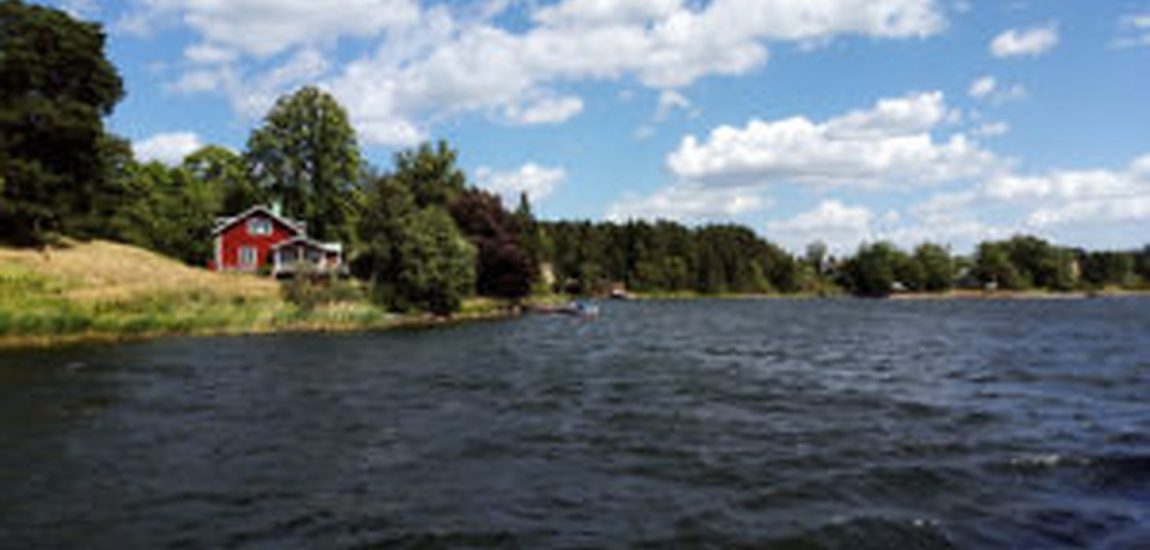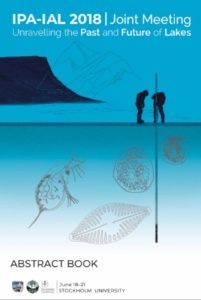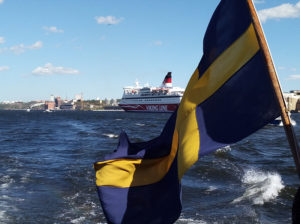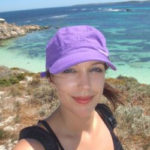
Unravelling the past and future of lakes at the IPA-IAL joint meeting

Thank you to EAG for providing sponsorship to help me attend the IPA-IAL (International Paleolimnology Association and International Association of Limnogeology) Joint Meeting: “Unravelling the Past and Future of Lakes”.
This was a wonderful opportunity for me to attend and present at the IPA-IAL joint meeting during the final stage of my PhD. My research on reconstructing past climatic and environmental conditions of carbonate formation associated with arid lakes and wetlands fit perfectly with the conference themes, which had a strong focus on the geology and geochemistry of lake sediments past and present. Participating in the meeting provided a platform for me gain valuable feedback from a relevant international audience.
The conference was well organised and was held at Stockholm University, which was a lovely location to attend. There was ample opportunity to socialise and network with other attendees, kicking off with an icebreaker at the university. I was able to present two oral presentations, which allowed me to communicate already published research as well as more recent work. This was useful as I was able to discuss my findings to date but also obtain feedback to assist my PhD completion and publications. It was very exciting to present in sessions where the chair-persons were world leaders in my area of research and also to hear them present as well as what other researchers in the field have been focusing on. I think attending the conference sessions as well as discussions during social events and fika (Swedish coffee and food break with socialising), were valuable for me to understand where my career may lead me and what areas of research and institutions would be appropriate for me moving forward.
On a more personal level, I really enjoyed catching up with a friend who had completed her PhD within the same research group as myself, at the University of Western Australia. She had been the person who had told me about the conference and we organised accommodation together, with some of her other friends. It was great to be able to socialise, discuss our current research and practice our presentations together. She was also able to introduce me to many colleagues and made social events much more relaxed for me.
and relevant sessions, I also attended a field trip of a boat ride around the Stockholm archipelago. This was a beautiful way to view the city and the surroundings and spend more time chatting with fellow attendees. Following this, a group of us also attended the Vasa maritime museum, which hosts an enormous Swedish warship that famously sank as soon as it sailed in 1628. The shipwreck was recovered much more recently in 1961 and made into a museum. This was a fantastic afternoon to immerse ourselves in the culture of Stockholm and experience the wonderful scenery. Stockholm is definitely one of the most beautiful cities I have ever visited and I highly recommend it as a tourist or research destination. Another stand out event was the conference dinner, which included the Swedish tradition of Sittning. The evening served a lovely three course meal with a great deal of entertainment. Soon, many of the attendees were on the dance floor late into the night.
I would highly recommend the IPA-IAL joint meeting for other students within the paleolimnology and Limnogeology fields. I found the fact the conference was not too large (<500 attendees) really useful to be able to attend many relevant sessions without missing out and to be able to socialise and network with researchers at all stages of their research careers.

About the Author

Caroline Mather is a PhD candidate within the School of Biological Sciences at the University of Western Australia. She is in the final year of her geochemistry project, investigating carbonate deposits to build knowledge of past environmental and hydrological conditions in the Pilbara region of northwest Australia. She hopes to become a post-doctoral researcher in lake sediment geochemistry following completion of her PhD.
